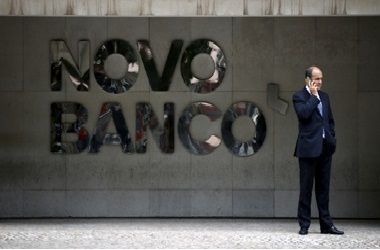The external review to determine whether credit default swaps linked to Portugal’s Novo Banco will pay out after €2bn of senior bonds were transferred to bad bank Banco Espirito Santo is scheduled to be held this Friday.
A deadline of February 16 has been set for a final decision to be made.
In order for the Bank of Portugal’s intervention to be ruled as a Governmental Intervention Credit Event under 2014 CDS definitions, the three-strong panel of legal experts must unanimously agree that the events involving the transfer of debt – which led the notes to shed 90% of their value – are covered by Section 4.8(a) of ISDA’s updated credit definitions.
Of the growing list of controversial CDS trigger determinations, the transfer of Novo Banco bonds is proving one of the most difficult to call (“Participants pressure ISDA for Novo Banco trigger” IFR 2115). ISDA’s credit determinations committee voted on the issue on January 12 with 11 of the 15 members voting against a credit event, ultimately missing the super-majority of 12 required to carry the decision.
Under DC rules, the strength of support against a trigger means that a split vote from the external panel would not be enough to overturn the DC.
The panel consists of Adrian Beltrami QC, Sir Bernard Rix and Mark Hapgood QC, with Timothy Howe QC acting as first alternate. Unlike DC meetings, which only publish details of any voting activity, a recording of the external review will be made public following the decision.
Along with lawfirm Linklaters, Howard is a lead advocate for the “Yes” position. In a report published ahead of the meeting in support of a trigger, the “Yes” advocates note that the BoP action with respect to Novo Banco falls within the broad language of Section 4.8(a), which specifies a broad range of events that would constitute governmental invervention. In addition, there is a catch-all, noting any event that “has an analogous effect to any of the events specified.”
In submitted documents, the “Yes” supporters note that the BoP action constitutes a “mandatory cancellation, conversion or exchange” as detailed in 4.8(a)(iii).
The report notes that the actions of the BoP are “precisely the type of event that the GICE was intended to cover…….A contrary conclusion would fail to give effect to the underlying purpose of Section 4.8(a).”
Submitted documents for the “No” position, advocated by law firm Mayer Brown and Robert Miles QC, argue that the rights of holders are not affected in any of the ways specified under section 4.8(a) as a result of the central bank action.
“They [bondholders] remain entitled to the same rates of interest and the same amounts of principal as before….The Affected Bonds were and remain senior obligations and have not been subordinated to any other obligation of the Reference Entity.”
The document notes that the action is a “transfer” rather than “cancellation, conversion or exchange” as specified under Section 4.8(a).
“Had the drafter intended to cover the case of imposing a new obligor on a security which otherwise remained entirely unchanged it could and would have used the concept of ‘transfer’.”
External reviews are a rare occurrence and the Novo Banco decision represents only the third time that the committee has been convened globally. It is the first external review for the EMEA DC, as highlighted by the fact that there were no external review pool members had been appointed for the region. The Americas DC has seven pool members and following the invitation for nominations, there are now five members in the EMEA pool.
Net notional of CDS outstanding on Novo Banco currently stands at US$383m. If the credit event is called, payouts would refer to the transfer date of December 30. At that point there was over US$400m net notional outstanding.
